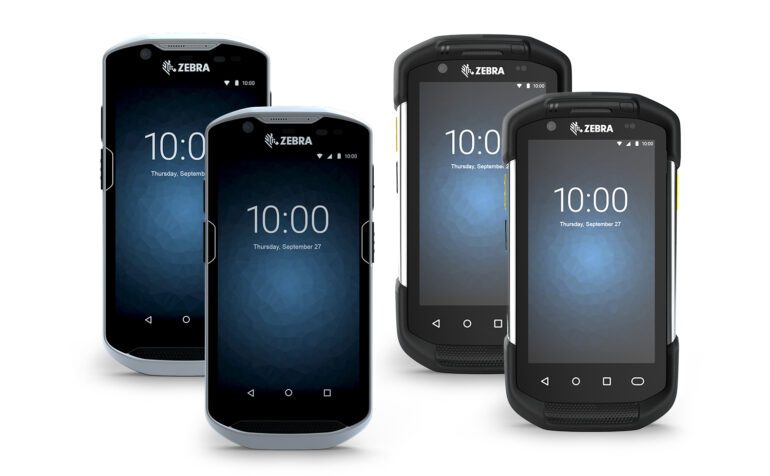TL;DR:
- Zebra and Qualcomm join forces to showcase on-device GenAI capabilities.
- GenAI LLMs enhance productivity in various industries without relying on cloud connectivity.
- Frontline workers benefit from personalized tools, privacy, and cost savings.
- Potential applications include improving employee effectiveness and enhancing the customer experience.
- Zebra’s mobile devices and Qualcomm’s technology deliver advanced data insights.
- The solution reduces memory requirements and aligns with ethical AI principles.
Main AI News:
Zebra Technologies Corporation, a prominent digital solutions provider, is revolutionizing the future of business operations in collaboration with Qualcomm. Through a groundbreaking demonstration, Zebra has showcased the capabilities of Generative Artificial Intelligence (GenAI) large language models (LLMs) running seamlessly on Zebra’s handheld mobile computers and tablets—entirely independent of cloud connectivity. This breakthrough ushers in a new era of productivity enhancements that promise to reshape various industries, including retail, warehousing, logistics, hospitality, and healthcare.
The deployment of on-device GenAI LLMs holds the potential to empower frontline workers with innovative tools, allowing them to deliver exceptional outcomes to their customers. Beyond enhanced personalization, on-device AI ensures superior privacy and security as data remains locally stored, while also delivering expedited performance and cost savings by eliminating the need for resource-intensive cloud searches. According to a whitepaper by Qualcomm Technologies, Inc., GenAI-based search costs per query are estimated to rise tenfold compared to conventional search methods, underscoring the financial advantages of on-device AI adoption.
Tom Bianculli, Chief Technology Officer at Zebra Technologies, emphasized, “Zebra’s devices serve as powerful platforms equipped with cutting-edge software and AI models. We are collaborating with our partner ecosystem to tackle customer challenges and create value by extending GenAI to on-device applications, including voice AI, computer vision, machine vision software driven by deep learning, and task and workflow software powered by orchestrated AI.”
The potential applications of LLMs are diverse, including improving employee effectiveness through enhanced product and customer service knowledge, acting as an efficient internal communications tool, and collecting and analyzing feedback to drive continuous improvement. LLMs also have the potential to enhance the customer experience by enabling personalized shopping assistants, integrating shopping experiences across various platforms, and enabling fully voice-activated shopping.
Zebra’s TC53/TC58 and TC73/TC78 mobile computers and ET6x Series tablets, powered by Qualcomm Technologies, in conjunction with Zebra’s asset visibility and intelligent automation solutions, offer advanced data insights, analysis, and recommendations, facilitating problem-solving, planning, and creativity. The advantage of using on-device models is especially pronounced in remote and challenging environments where cloud connectivity may be limited. Alternatively, users can seamlessly transition to cloud-based GenAI tools via Zebra’s Wi-Fi 6/6E and 5G-enabled devices.
Megha Daga, Senior Director, Product Management at Qualcomm Technologies, Inc., highlighted the transformative potential of on-device generative AI: “On-device generative AI is unlocking new and enhanced experiences across industries. Qualcomm Technologies’ goal is to drive the transformation of industries, and we are doing just that, beginning with mobile devices. Zebra’s demonstration is showcasing the type of transformation we aim to achieve.“
Zebra’s innovative solution, built on Qualcomm Technologies’ platform, reduces memory requirements and leverages a wide array of open-source and third-party models—a pivotal part of Zebra’s strategy to deliver effective on-edge AI solutions across diverse industries. Andrea Mirabile, Director of AI Research at Zebra Technologies, stressed Zebra’s commitment to ethical and responsible AI, aligning with federal guidelines on accountability, ethical purpose, and transparency. Additionally, Zebra supports the Business Roundtable AI Road Map and policy recommendations for responsible, appropriate, and ethical AI development and deployment.
Conclusion:
The collaboration between Zebra Technologies and Qualcomm, bringing on-device GenAI capabilities to the forefront, signifies a significant shift in the business landscape. This advancement promises enhanced productivity, personalized tools, and cost savings for industries ranging from retail to healthcare. By eliminating the need for constant cloud connectivity, it also addresses privacy concerns and offers businesses a competitive edge in today’s data-driven world. This innovation is set to reshape the market by providing practical and ethical AI solutions that cater to diverse industry needs.

